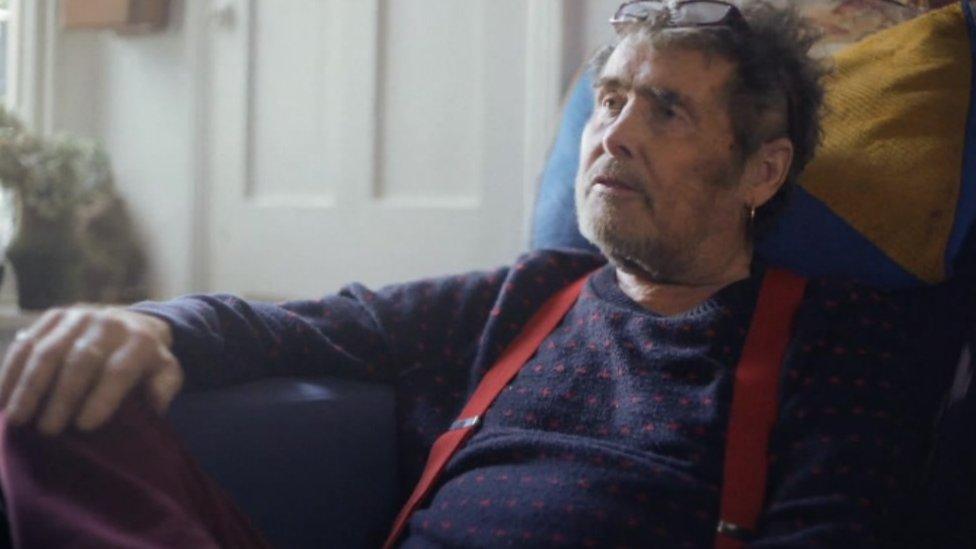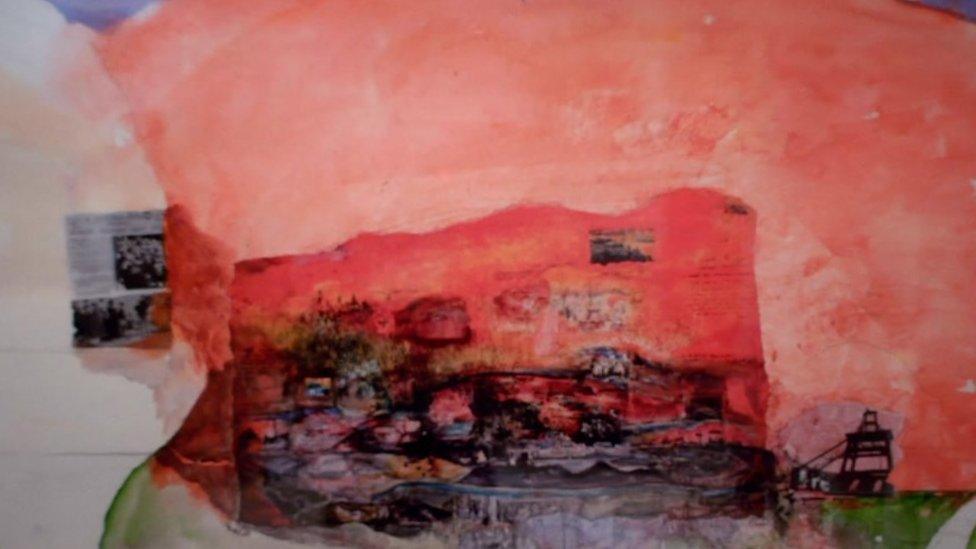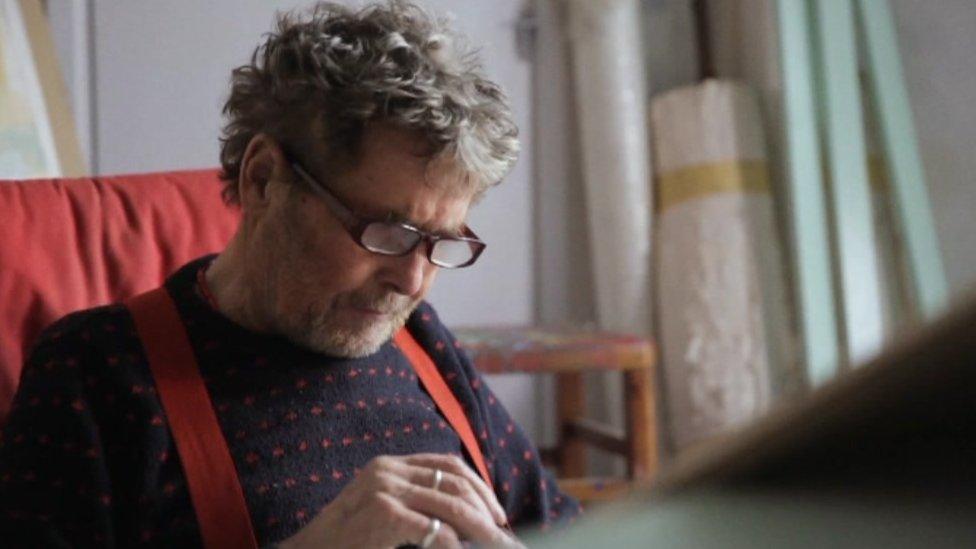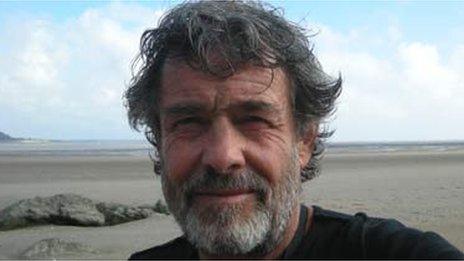Artist Osi Rhys Osmond's last work for Maggie's cancer centre
- Published

The last painting by Welsh artist Osi Rhys Osmond is to be displayed in public for the first time.
Self Portrait was painted during the last month of Osmond's life while he received treatment for cancer.
It will have a permanent home at a new cancer support centre in the city.
A film documentary was also made with Osmond before his death in March.
The final painting by celebrated Welsh artist Osi Rhys Osmond will be displayed in public for the first time
Described as "one of Wales most foremost artists and an ardent Welshman," he was also a lecturer and promoter of Welsh art.
His final painting will eventually hang in the new Maggie's support centre for people with cancer, which opens at Velindre hospital in Cardiff in 2017.
While the work is entitled Self Portrait, Osmond focuses on the landscapes that have been his home: his birthplace of Wattsville in Caerphilly county, and his home of 30 years at Llansteffan on the Carmarthenshire coast.


This watercolour draws on Osmond's home village of Wattsville

Osmond died before he could complete the painting

Osmond died before he could finish the painting, but in the documentary A Brief Eternity: Ar Awyr Le by filmmaker Clare Sturges, external, Osmond said he "wouldn't be disillusioned" if it remained unfinished.
"Abandonment, sometimes, can be the fulfilment of something," he said.
"It may not have been the end you have planned, but there will be value in that ending.
'Enriching'
"It will be there for people to look at and consider, and think 'this man struggled, this man made an effort, this man thought about things quite deeply'."
The documentary follows Osmond's progress as he worked on the painting, and as he came to terms with nearing the end of his life.
He told the film: "I believe that our lives are our infinities. I don't remember what happened before, and I won't remember or have any knowledge of what happens afterwards. So I don't fear death, in that respect, because it's not going to happen. This is what I call my brief eternity."
Osmond describes cancer as "an extraordinary experience," and "enriching", which was difficult for most people to come to terms with.
"They think it's like having a boil, that it's just a bloody nuisance. But because of the way it takes over the whole of your existence, the whole of your life, the whole of your family, the whole of your friends and acquaintances, it is more than an illness. It is a way of being."
- Published7 March 2015
